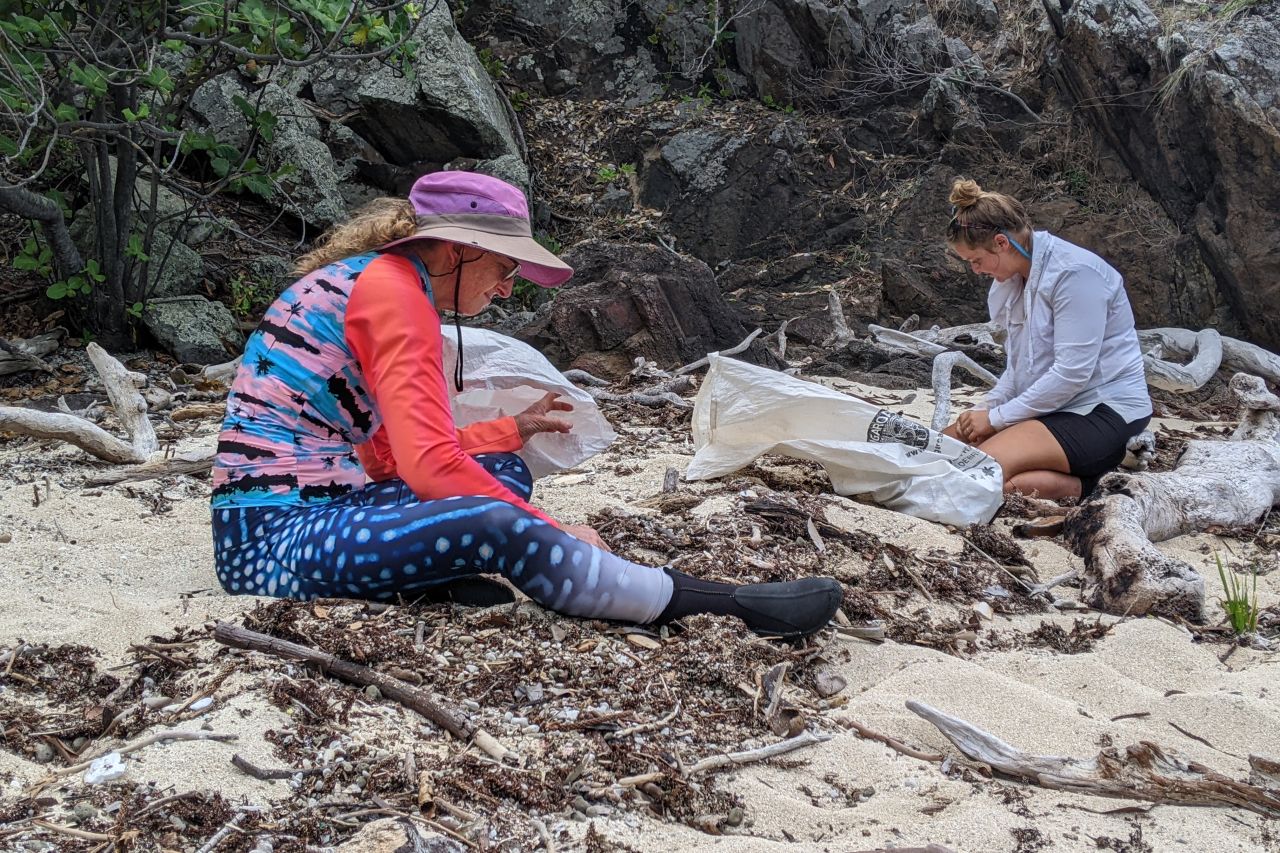News ·
On the Front Line with Reef Community Scientists
Dive into the world of Reef citizen science and community partnerships, where unity unlocks the extraordinary and we are witnessing the power of collective action.
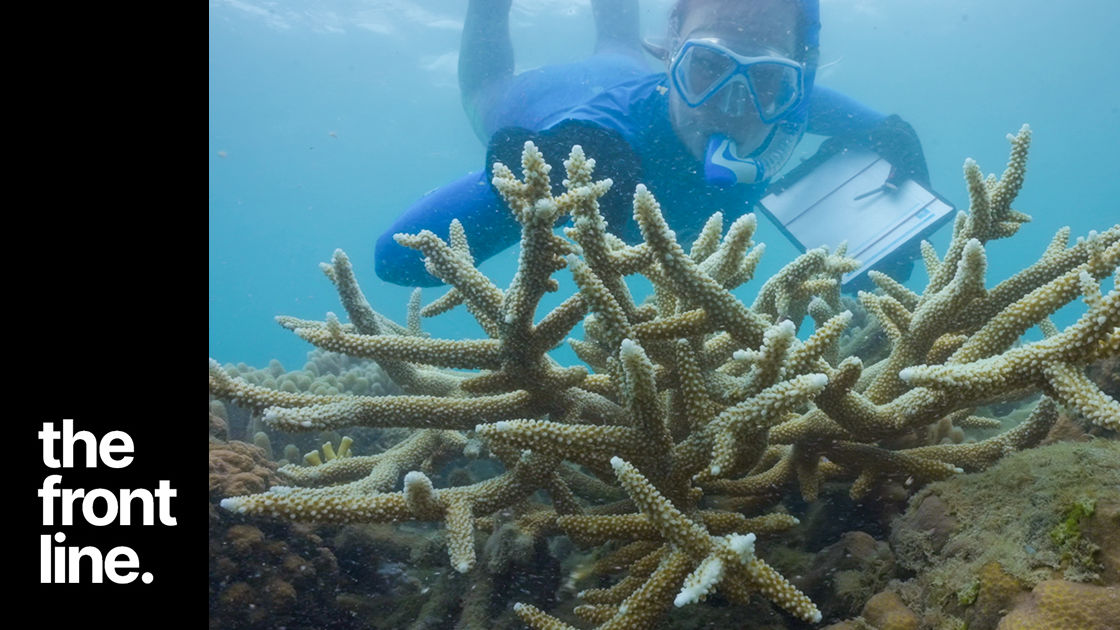
The Great Barrier Reef is enormous: a complex and highly diverse ecosystem made up of corals, mangroves, seagrass and more. To care for a place of this scale and complexity requires collaboration with a range of people, and quality data to help inform actions.
Citizen science is a connector. It complements science and management efforts by engaging community members in collecting valuable information to help understand and care for the Reef. Through these programs, organisations bring together diverse partners in new ways to identify what data is needed, how community can collect it and how to use it for decision making and planning to build Reef and community resilience in the face of climate change.
Project partners from four community science initiatives are working from creek to coral. They are connecting their communities in gathering and translating information to inform action and strengthening community leaders as local champions for the Reef.
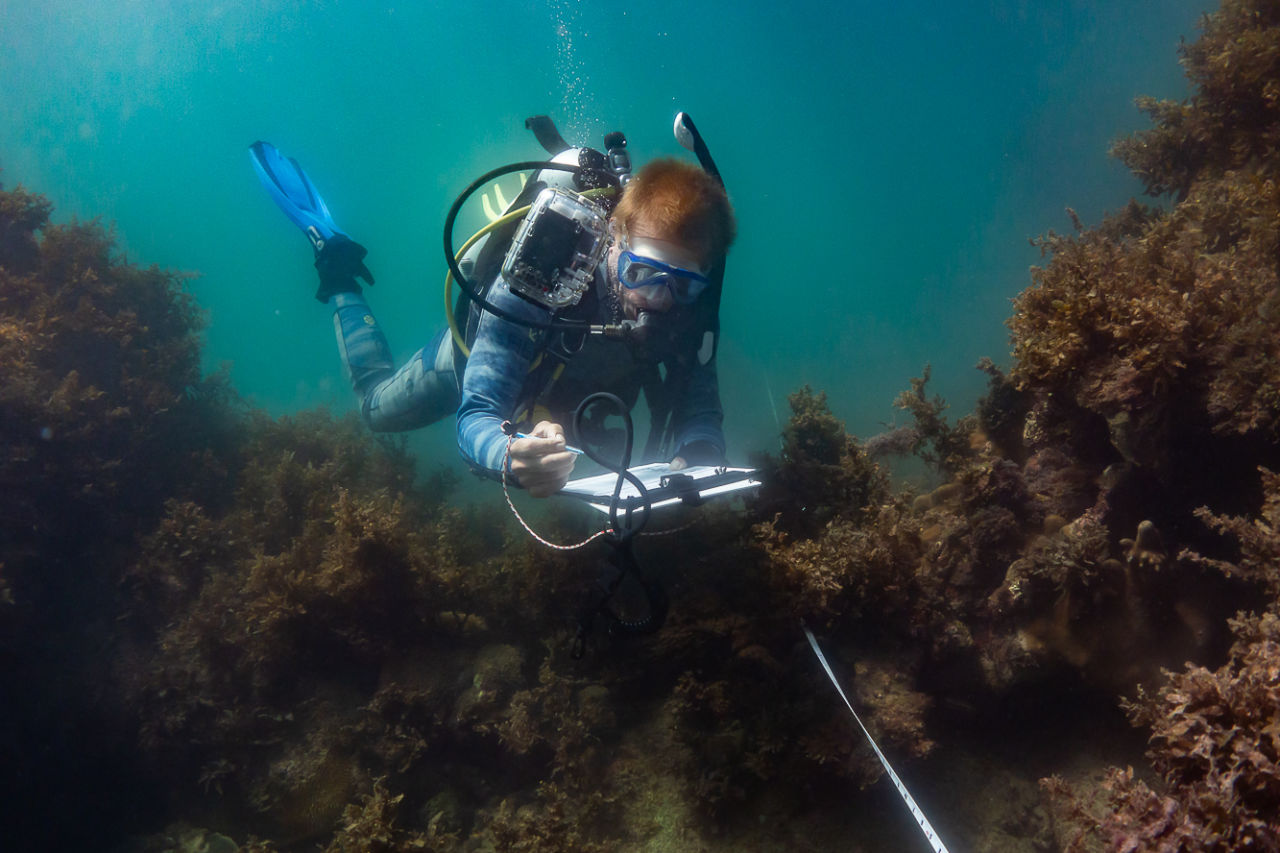
Dive surveying in action. Credit: Reef Ecologic
Our project partners are uniquely placed at the intersection of community engagement and scientific research to drive Reef conservation.
As Paula Cartwright, JCU Marine Scientist remarks: “Citizen science is fantastic. Scientists can’t be everywhere, so if we can work with citizen scientists, we can train them, tell them what we need, and have so much more data collected through fantastic engagement with the community. The community gets a lot from it, we get a lot from it, it’s just a win–win for everyone.”
Projects featured in the video are working closely with waterway health regional report cards across Queensland to apply existing citizen science data, identify critical gaps in knowledge, and find ways to mobilise local communities to fill these gaps and actively contribute to caring for local waterways and reefs.
In the local waterways of Townsville, Ozfish Unlimited is working with volunteers to pilot using environmental DNA (eDNA) technology to gather a snapshot of fish diversity. Community teams are gathering samples from local waterways, and researchers at James Cook University’s TropWATER are analysing the samples and sharing back the findings.
Waterways and reefs are closely connected, so identifying fish communities and other signs of waterway health helps to understand influences on the health of local reefs. Ozfish Unlimited’s Geoff Collins explains: “A lot of the fish fauna and fish diversity that you find in these waterways has elements of our lifecycle. They spend part of their life in freshwater and they spend part of their life in saltwater.”
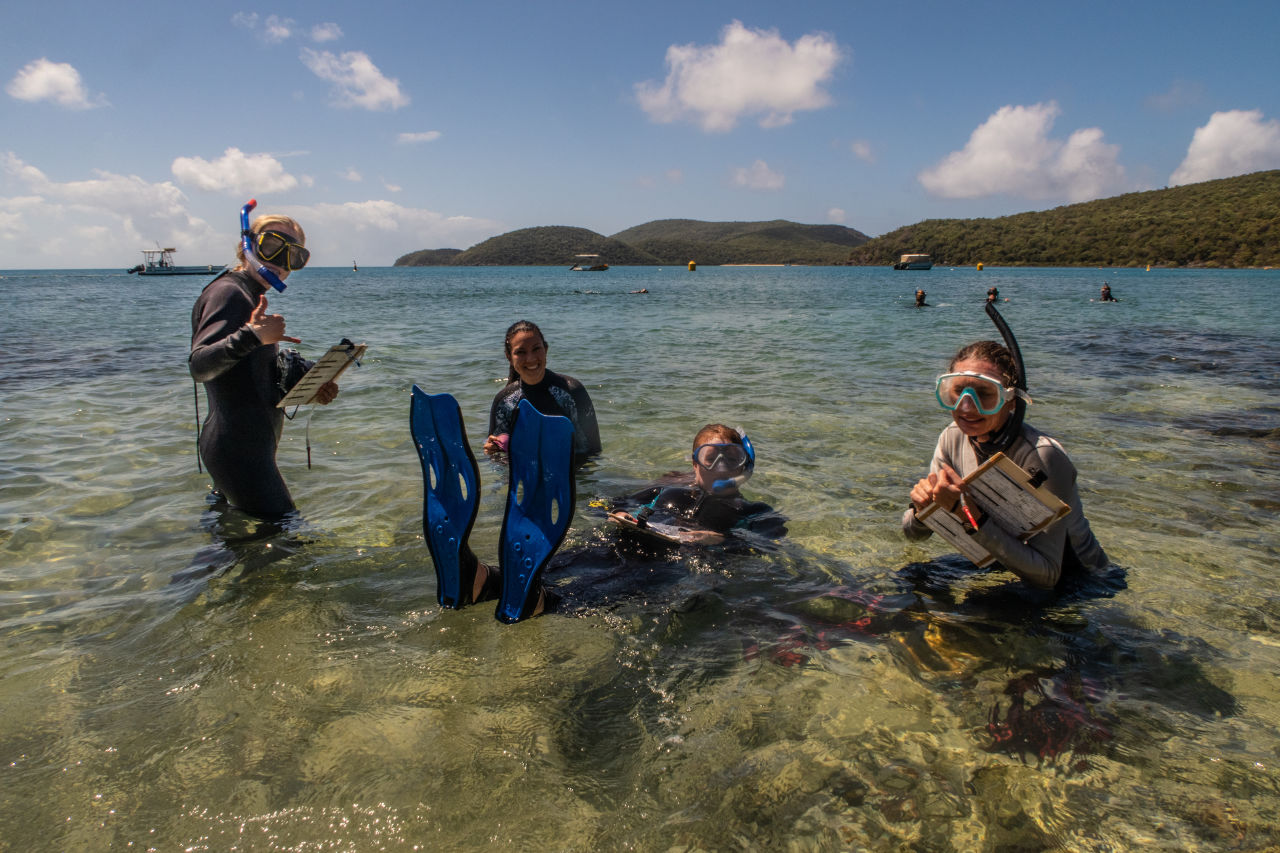
The team ready to go out on survey. Credit: Reef Ecologic
Out on the reefs of the Whitsundays, Traditional Owners, tourism operators, and local scientists are coming together to monitor water quality at two Reef sites in the outer Whitsunday islands. These partners wanted to better understand local trends to help shape actions to care for these special sites.
The team collect regular water samples and actively engage with Reef visitors.
“Connecting people with the land and Country is how we inspire change,” said Robert Congoo, a Gia & Ngaro Traditional Owner.
The water quality data is being collated and analysed, with the ultimate goal of being shared with a range of local partners to help build a clearer understanding of pressures on local reefs and empowering the community to design solutions together. As Jaime Newborn of Healthy Rivers to Reef points out, “there’s enormous power to use citizen science in the community to make a change”.
Reef Check Australia’s community teams are also out on reefs around the Whitsundays.
“We’re looking at Reef health overall and how that’s going, but what we’re really interested in is also looking at different types of projects that engage more people,” said Jodi Salmond of Reef Check Australia. This citizen science data on corals has been formally adopted for use in both the Whitsundays and Dry Tropics report cards, bolstering information available and demonstrating the credibility of community data for formal reporting.
“In the context of citizen science there is so much the community can do when it comes to monitoring and research, and that is really exciting for the regional report cards,” shared Jaime.
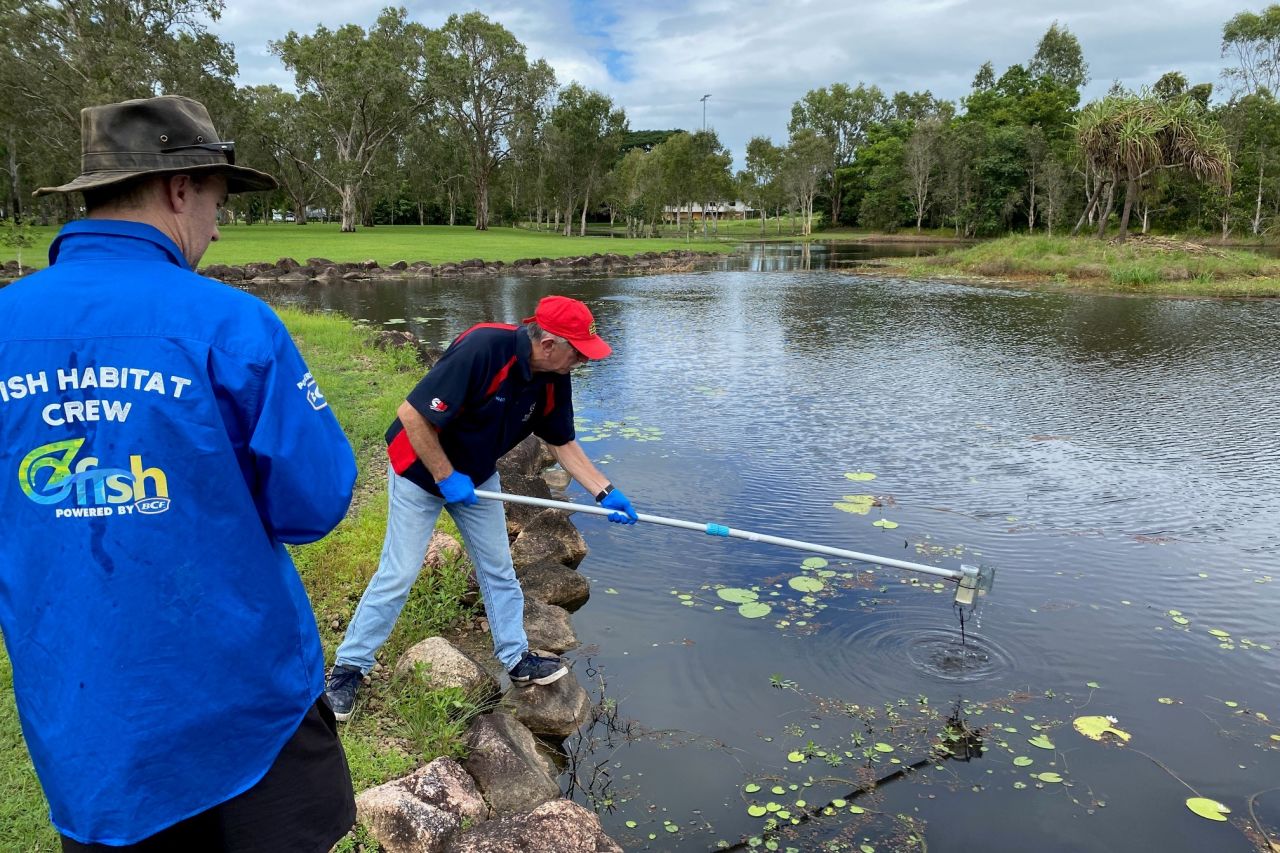
The OzFish team conducting eDNA water sampling in the Herbert. Credit: OzFish Unlimited
With that established data use underway, the teams are now exploring new opportunities like using drones for shallow water reef mapping to keep strengthening information and offer new chances for people to get involved.
Adam Smith of Reef Ecologic who supports integrated reef health monitoring across multiple citizen science programs in Townsville shares: “That’s the real power, to work together, to learn from each other and to collaborate and make a difference.”
All of these community leaders are passionate about what they do and about sharing the message that we all have the power to support change.
Kara-Mae Coulter-Atkins of the Dry Tropics Partnership for Healthy Waters reflects: “When it comes to thinking about how actions on the ground can impact the Reef, I like to paint a picture, from residential to rivers to reef. Everything is connected. Whatever we do in our homes or backyards eventually leads to our rivers and in turn, leads to our reefs.”
We have a critical window of time to shape a better future for the Reef. Collaboration is key to tackling the complex issues we face, and the enthusiasm and determination of our community partners to bring people together to care for people and the Reef is clear to see.
